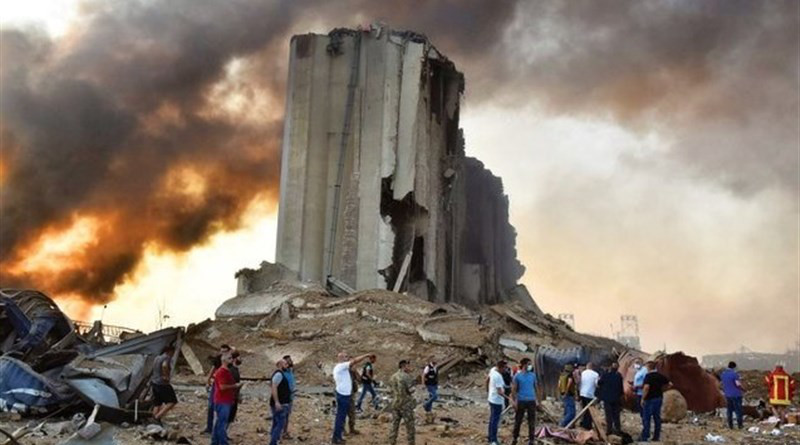Lebanon: Evidence Implicates Officials In Beirut Blast
Evidence implicates senior Lebanese officials in the August 4, 2020, explosion in Beirut that killed 218 people, but systemic problems in Lebanon’s legal and political system are allowing them to avoid accountability, Human Rights Watch said in a report. The UN Human Rights Council should mandate an investigation, and countries with Global Magnitsky and similar human rights and corruption sanctions regimes should sanction officials implicated in ongoing violations of human rights resulting from the August 4 explosion and efforts to undermine accountability.
The 127 page report, “‘They Killed Us from the Inside’: An Investigation into the August 4 Beirut Blast,” sets out the evidence of official conduct, in a context of longstanding corruption and mismanagement at the port, that allowed for tonnes of ammonium nitrate, a potentially explosive chemical compound, to be haphazardly and unsafely stored there for nearly six years. The detonation of the chemical caused one of the largest non-nuclear explosions in history, pulverizing the port and damaging over half the city.
“The evidence overwhelmingly shows that the August 2020 explosion in Beirut’s port was caused by the actions and omissions of senior Lebanese officials who failed to accurately communicate the dangers posed by the ammonium nitrate, knowingly stored the material in unsafe conditions, and failed to protect the public,” said Lama Fakih, crisis and conflict director at Human Rights Watch. “A year later, the scars of that devastating day remain etched in the city while survivors and families of the victims await answers.”
Human Rights Watch drew on official correspondence regarding the Rhosus, the ship that brought the ammonium nitrate to the port, and its cargo, some of which has not been published before, and interviews with government, security, and judicial officials, to outline how the dangerous material arrived and was stored at the port. Human Rights Watch also detailed what government officials knew about the ammonium nitrate and what actions they took or failed to take to safeguard the population.
The evidence to date raises questions regarding whether the ammonium nitrate was intended for Mozambique, as the Rhosus‘s shipping documents stated, or whether Beirut was the intended destination. The evidence currently available also indicates that multiple Lebanese authorities were, at a minimum, criminally negligent under Lebanese law in their handling of the cargo, creating an unreasonable risk to life, Human Rights Watch said.
Further, official documentation strongly suggests that some government officials foresaw and tacitly accepted the risks of death posed by the ammonium nitrate’s presence in the port. Under domestic law, this could amount to the crime of homicide with probable intent, and/or unintentional homicide. Under international human rights law, a state’s failure to act to prevent foreseeable risks to life violates the right to life.

